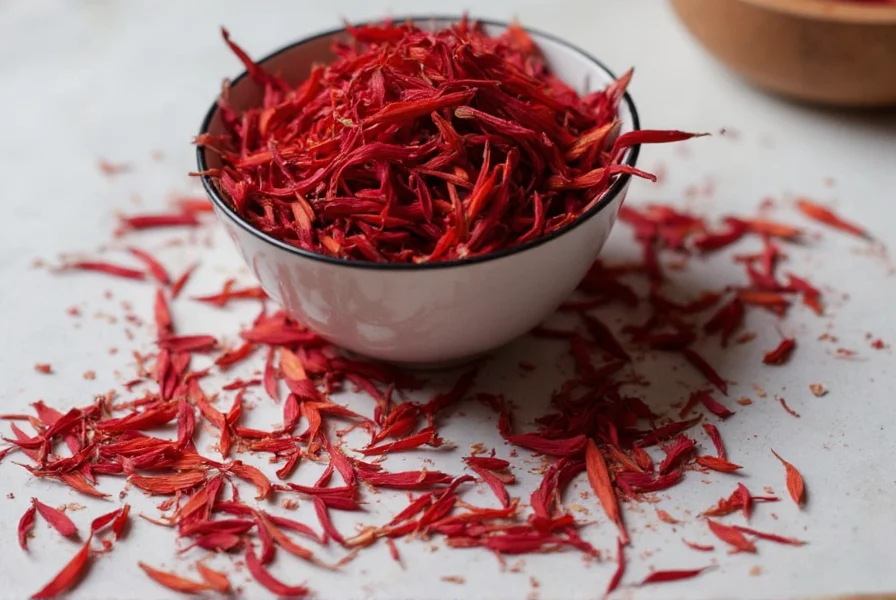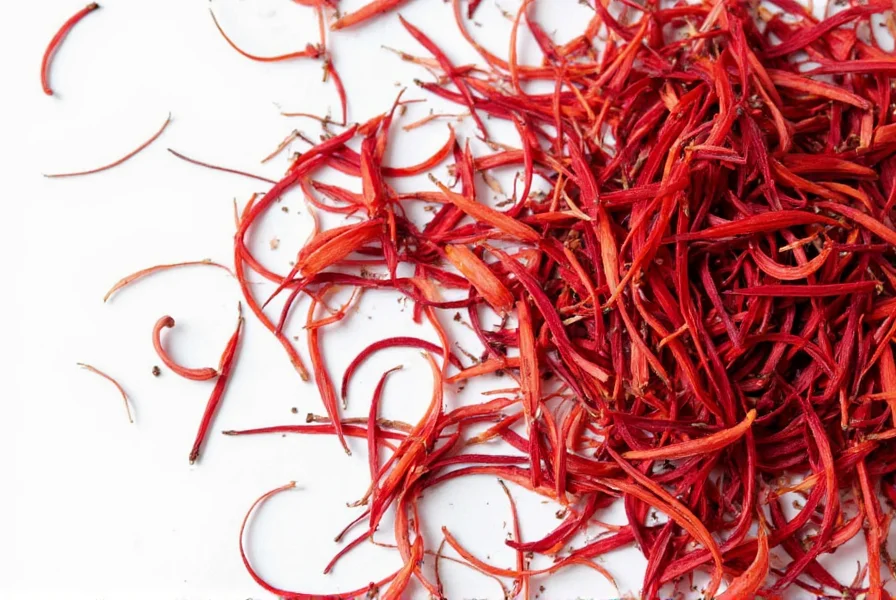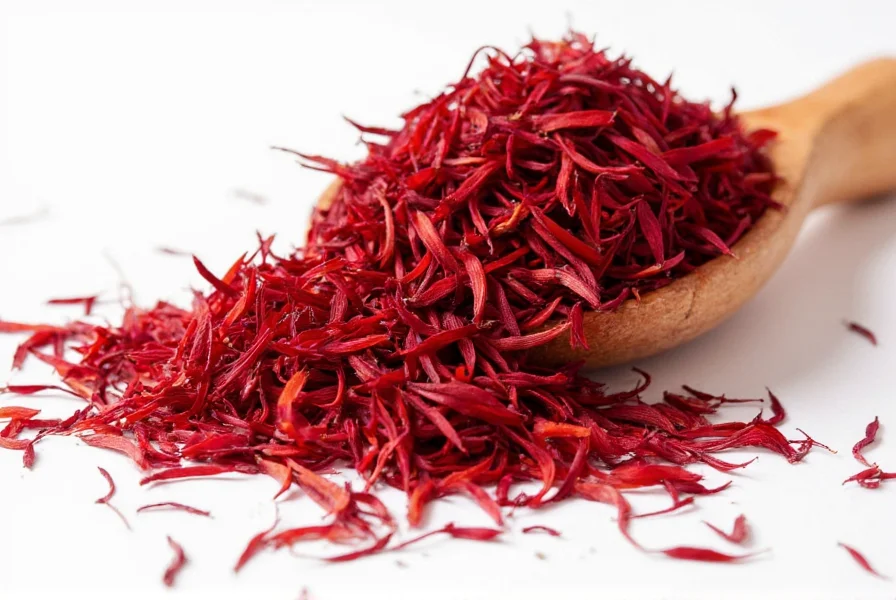Depression affects millions worldwide, and many seek complementary approaches alongside conventional treatments. Saffron, the world's most expensive spice derived from Crocus sativus flowers, has emerged as a promising natural option supported by growing scientific research. This article examines what current evidence reveals about saffron for depression treatment, separating established findings from preliminary research.
The Science Behind Saffron and Depression
Researchers have identified two primary compounds in saffron responsible for its potential antidepressant properties: crocin and safranal. These bioactive components appear to influence multiple neurotransmitter systems involved in mood regulation. Unlike many pharmaceutical antidepressants that primarily target serotonin, saffron's compounds may simultaneously affect serotonin, dopamine, and norepinephrine pathways.
A comprehensive 2020 meta-analysis published in Phytotherapy Research reviewed 12 randomized controlled trials involving 906 participants. The analysis concluded that saffron supplementation demonstrated significant antidepressant effects compared to placebo, with efficacy comparable to selective serotonin reuptake inhibitors (SSRIs) for mild to moderate depression. The researchers noted saffron's favorable safety profile as particularly noteworthy.

Comparing Saffron to Conventional Antidepressants
Several head-to-head studies have compared saffron extract to common antidepressant medications. In a six-week trial published in the Human Psychopharmacology journal, researchers found that 30mg daily of saffron extract performed similarly to 20mg of fluoxetine (Prozac) in reducing depression symptoms, with both groups showing approximately 50% improvement on standard depression scales.
Another study comparing saffron to imipramine (a tricyclic antidepressant) found comparable effectiveness after six weeks of treatment. Notably, the saffron group reported fewer side effects, particularly regarding sexual dysfunction and dry mouth—common issues with conventional antidepressants.
| Comparison | Saffron Extract | Conventional Antidepressants |
|---|---|---|
| Typical Dosage | 15-30mg daily of standardized extract | Varies by medication (e.g., 20-40mg fluoxetine) |
| Time to Noticeable Effect | 2-4 weeks | 4-6 weeks |
| Common Side Effects | Rare; possible dry mouth, anxiety at high doses | Sexual dysfunction, weight gain, nausea, insomnia |
| Cost Comparison | Moderate (approximately $30-50 monthly) | Varies (generic options available) |
Mechanisms of Action: How Saffron May Help Depression
Saffron's potential antidepressant effects appear to work through multiple pathways:
- Serotonin modulation - Saffron compounds may inhibit serotonin reuptake similar to SSRIs
- Anti-inflammatory properties - Chronic inflammation is linked to depression; saffron shows significant anti-inflammatory effects
- Neuroprotective effects - Saffron may protect brain cells from oxidative stress
- Hypothalamic-pituitary-adrenal (HPA) axis regulation - Saffron may help normalize stress response systems
These multiple mechanisms may explain why saffron shows promise as a complementary treatment for depression, potentially addressing aspects that single-pathway pharmaceuticals might miss.
Recommended Dosage and Treatment Duration
Based on clinical studies examining saffron for depression treatment, researchers typically use:
- 30mg daily of standardized saffron extract (containing 2% safranal and 2.5% crocin)
- Dosage split into two 15mg doses taken morning and evening
- Treatment duration of 6-8 weeks for measurable effects
It's important to note that whole saffron spice from culinary use won't provide therapeutic doses—the concentration in food is far too low. Research specifically uses standardized extracts that concentrate the active compounds.

Safety Profile and Potential Side Effects
Saffron demonstrates an excellent safety profile in clinical studies for depression treatment. Most research reports minimal side effects, especially when compared to conventional antidepressants. The most commonly reported issues include:
- Mild digestive discomfort
- Dry mouth (less frequent than with SSRIs)
- Anxiety or restlessness at very high doses (above 1.5g daily)
Crucially, saffron appears to have minimal drug interactions compared to many antidepressants. However, individuals taking other medications should consult their healthcare provider before starting saffron supplementation. Pregnant women should avoid therapeutic doses of saffron as high amounts may stimulate uterine contractions.
Important Considerations for Using Saffron
While research on saffron for depression is promising, several important considerations exist:
- Saffron is not a replacement for professional depression treatment, especially for severe depression
- Quality varies significantly among saffron supplements—look for standardized extracts with verified crocin and safranal content
- Most studies focus on mild to moderate depression; evidence for severe depression is limited
- Long-term safety data beyond 8-12 weeks is still lacking
- Individual responses vary—what works for one person may not work for another
Anyone considering saffron as part of their depression management should discuss it with their healthcare provider, particularly if taking other medications. Depression is a serious medical condition that requires proper diagnosis and treatment planning.
Conclusion: Saffron's Role in Depression Management
Current evidence positions saffron as a potentially valuable complementary approach for managing mild to moderate depression. Its multi-pathway mechanism of action, favorable side effect profile, and demonstrated efficacy in clinical trials make it worthy of consideration alongside conventional treatments. However, more large-scale, long-term studies are needed to fully understand saffron's role in comprehensive depression treatment protocols. As with any treatment approach for depression, individualized care under medical supervision remains essential.











 浙公网安备
33010002000092号
浙公网安备
33010002000092号 浙B2-20120091-4
浙B2-20120091-4